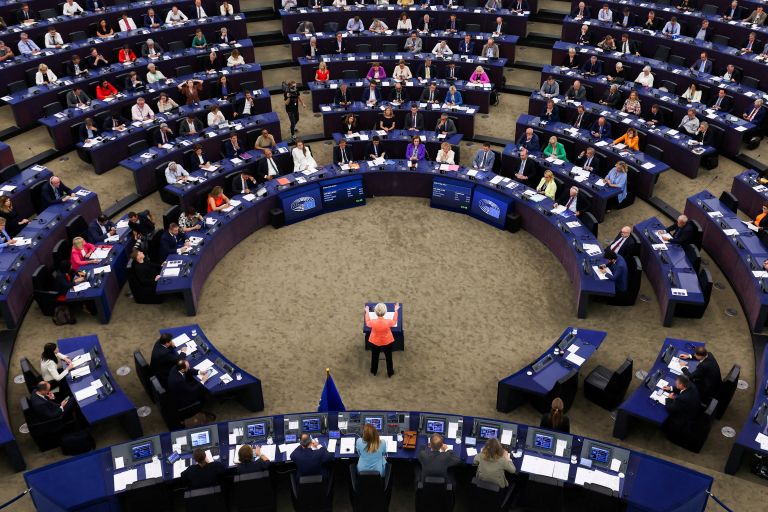European Parliament overhauls migration and asylum reform

Πηγή Φωτογραφίας: European Commission President Ursula von der Leyen delivers the State of the European Union address to the European Parliament, in Strasbourg, France. REUTERS/Yves Herman
The European Parliament has passed key legislation fundamentally changing how the European Union tackles illegal migration.
The decision comes against a backdrop of escalating tensions and diverging opinions on how to handle huge numbers of people, often seeking asylum while fleeing conflict in their own countries.
The sweeping reforms, known as the New Pact on Migration and Asylum, are designed to ease the burden on countries like Greece that have traditionally bore the brunt of asylum seekers flooding the EU’s 27 member states.
Under a law known as the Dublin Regulation, member states were responsible for processing asylum-seekers who first arrived in the EU at their border, with little central help from Brussels or the other member states. Now, that regulation will be overhauled as part of wide-ranging reforms, spreading the burden across the 27 member states, either through relocation of people to other member states or through financial and practical assistance in processing refugee claims.
Wednesday’s vote was marred by protests, highlighting the contentious nature of the legislation. Human rights organisations, including Amnesty International, say the reforms are not as wide ranging as hoped for.
While the Dublin Regulation is being overhauled, the burden of processing migrants will still mostly fall on the countries where they land. Factors, such as if they hold a diploma obtained in the past six years from another member state or have family elsewhere in the bloc, can allow migrants to apply elsewhere. But experts say those numbers are small compared to the vast flood of migrants illegally flowing to the EU.
Other contentious parts include what has been dubbed “the solidarity mechanism,” that makes it mandatory for other member states to help those most affected by migration through taking people themselves. EU rules, specifically, will set this as a minimum of 30,000 per member state per year and financial support at $600 million.




Το σχόλιο σας